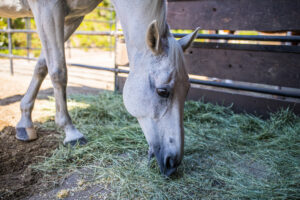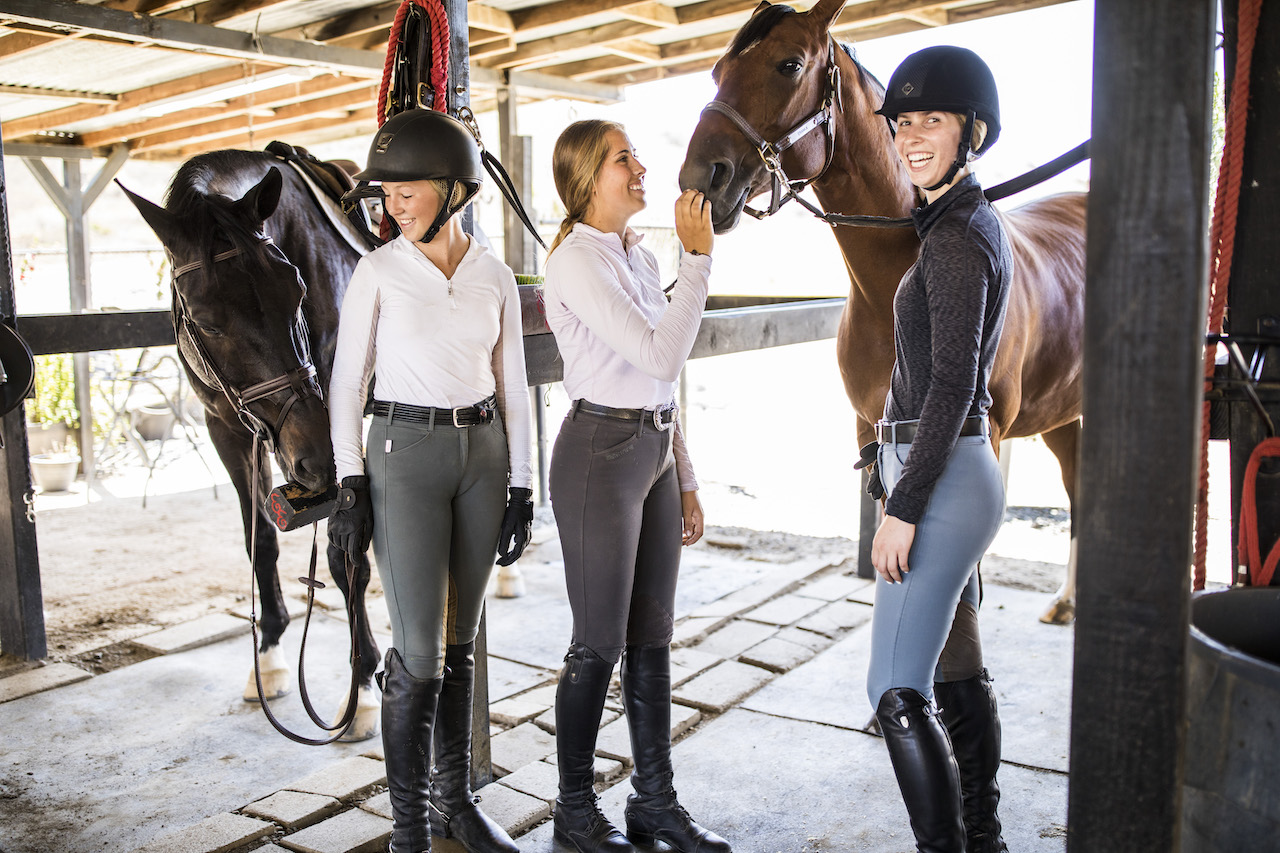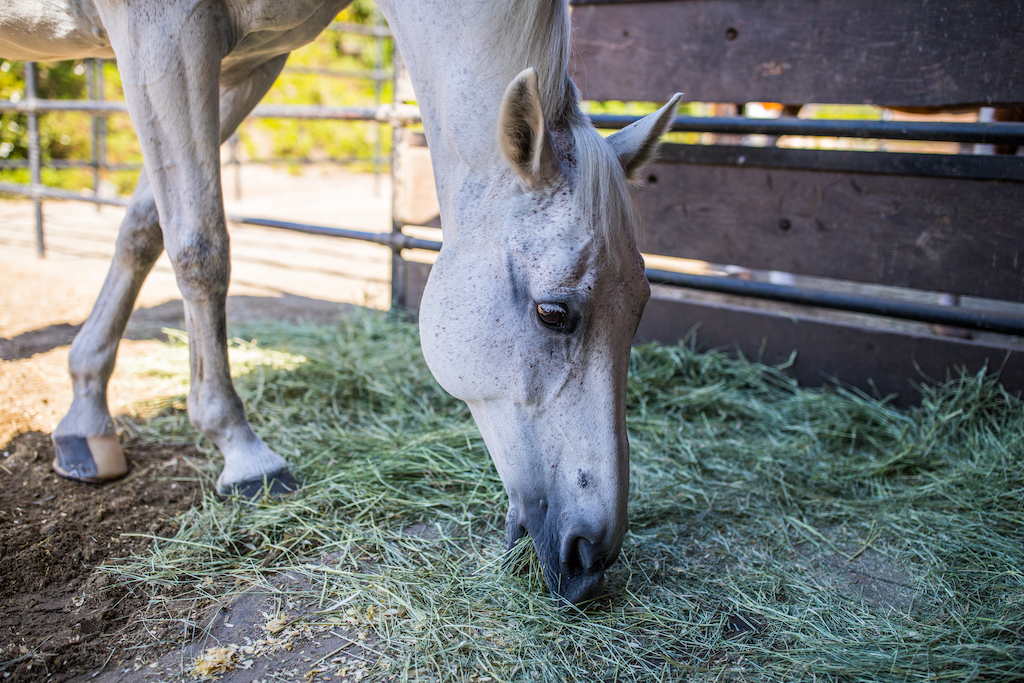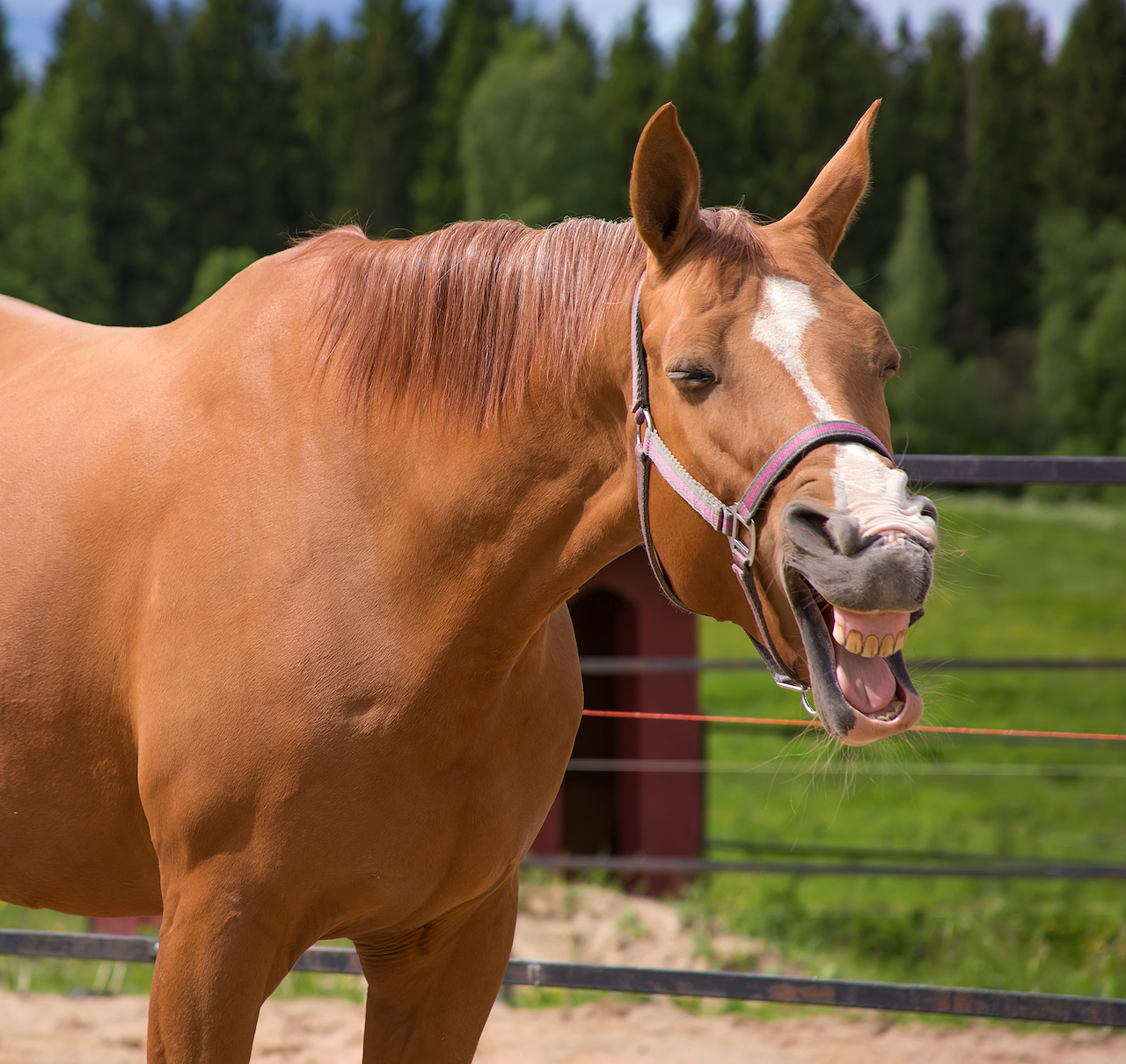Your horse communicates with you all the time and even knows how to read your expression and mood.
Horses can discriminate between cheerful and angry facial expressions presented in photographs – and remember that expression in their future interactions. So, if you walk into the stable in a bad mood twice, your horse may avoid you the next visit, even if you’re feeling happier.
A famous example of the mind-reading skills of horses was Clever Hans, the famous counting horse. Hans was actually just really good at reading his owner’s body language. He figured out how to “solve” simple math problems by observing the tension in his trainer’s neck. When the horse’s pawing arrived at the correct answer, his owner unconsciously relaxed his neck muscles and the horse stopped instantly.
Horses can read us phenomenally well, but sometimes we don’t understand their signs correctly. Take happiness for example. Is your horse living his best life?
Read on to discover 6 important indications of happiness that show your horse is thriving.
First Impressions
The expression of a horse has been thought to be an indicator of his personality since Bucephalus first let Alexander the Great ride him away from his shadow.
Horses can look happy though. A happy expression has sleepy eyes, floppy ears, and stretched-out lips. Often it even looks like they have a bit of a smile.
Big Appetite
It’s common knowledge that most horses love food. They can and will gorge themselves to death if given free access to rich hay or concentrated feed. That’s how much they love to eat! So, if your horse has gone off his rations or has been labeled a fussy eater, it may indicate he’s suffering from a gastric illness (such as ulcers) or something else. It’s always best to call your vet to be sure.

Easygoing
Happy horses are enjoyable to be around. They are curious, alert, and enjoy human company.
It’s impossible for a horse feeling pain to pretend to be happy and recent studies have shown that grumpy behavior on the ground or in the saddle usually indicates an underlying physical or emotional condition.
On that point, never ignore signs of an unhappy horse under saddle, such as a swishing tail, resistance to contact or hypersensitivity to leg pressure. Many trainers teach horses to suppress their emotions and reactions. But signs of touchiness and irritation may be an important early sign of pain, illness, or stress.
On that same note, unhappy horses will often express stereotypies. What’s a stereotypy you ask? Well, if you have ever seen someone biting their fingernails under pressure, you know what a stereotypy looks like. Stereotypies are negative habits that occur when horses experience stress, boredom, and isolation.
Examples of these destructive habits include cribbing, weaving, nodding, box walking, wood chewing and box kicking. These habits only occur in captive horses and have never been observed in the wild. Often seen in horses that are penned up or separated from their pals, a lack of essential stimuli can and does cause horses to invent stimuli of their own.
Forty Winks
You might not know it, but thousands of horses suffer from sleep deprivation.
In a similar fashion to humans suffering insomnia, lack of sleep can have devastating consequences on a horse’s physical and emotional wellbeing.
A team of scientists at the Ludwig-Maximilian-University discovered that 25% of all horses suffering this infliction (they studied thousands of cases) ALSO suffered from stress-induced stereotypies like cribbing. Adding to this, they found that sleep disorders were usually caused by management issues (isolation or poor care) or physical pain. In short, happy horses don’t have trouble sleeping.
Goofing About Is Good
“A horse that plays with his pals is a happy horse.”
Horses won’t play with each other unless they’re feeling good. This is because they are social creatures that receive feel-good benefits when they experience play and mutual grooming sessions with their equine pals. On the contrary, if you notice your horse is behaving destructively when turned out (breaking down fences or escaping) this may be an expression of social anxiety or an absence of stimulation.
The Scoop on Poop
A happy horse is a healthy horse, and when a horse is feeling anxious, or under stress, he often will poop in unhealthy ways. Sometimes more than usual, other times not at all. The consistency of his poop is a marker of his general wellbeing (it shouldn’t be too soft or too hard). Several studies have shown that horses kept in isolation are more susceptible to stomach disorders such as colic, gastric ulcers, and intestinal inflammation – and their poop will often be irregular too. One of the most persistent symptoms of sand colic is diarrhea. So, if your horse is suffering from recurrent poop problems, stress or illness may be to blame.
In Summary- we know horses are bright and sensitive animals, but sometimes we forget that they have needs and desires that are entirely independent of what we ask of and expect from them. Luckily, we can learn to recognize tell-tale indicators of their happiness to accurately judge their contentment and life standard now and in the future.

Remember, a healthy horse is a happy horse. And behind every happy horse is a very happy owner.
Happy horsing!


